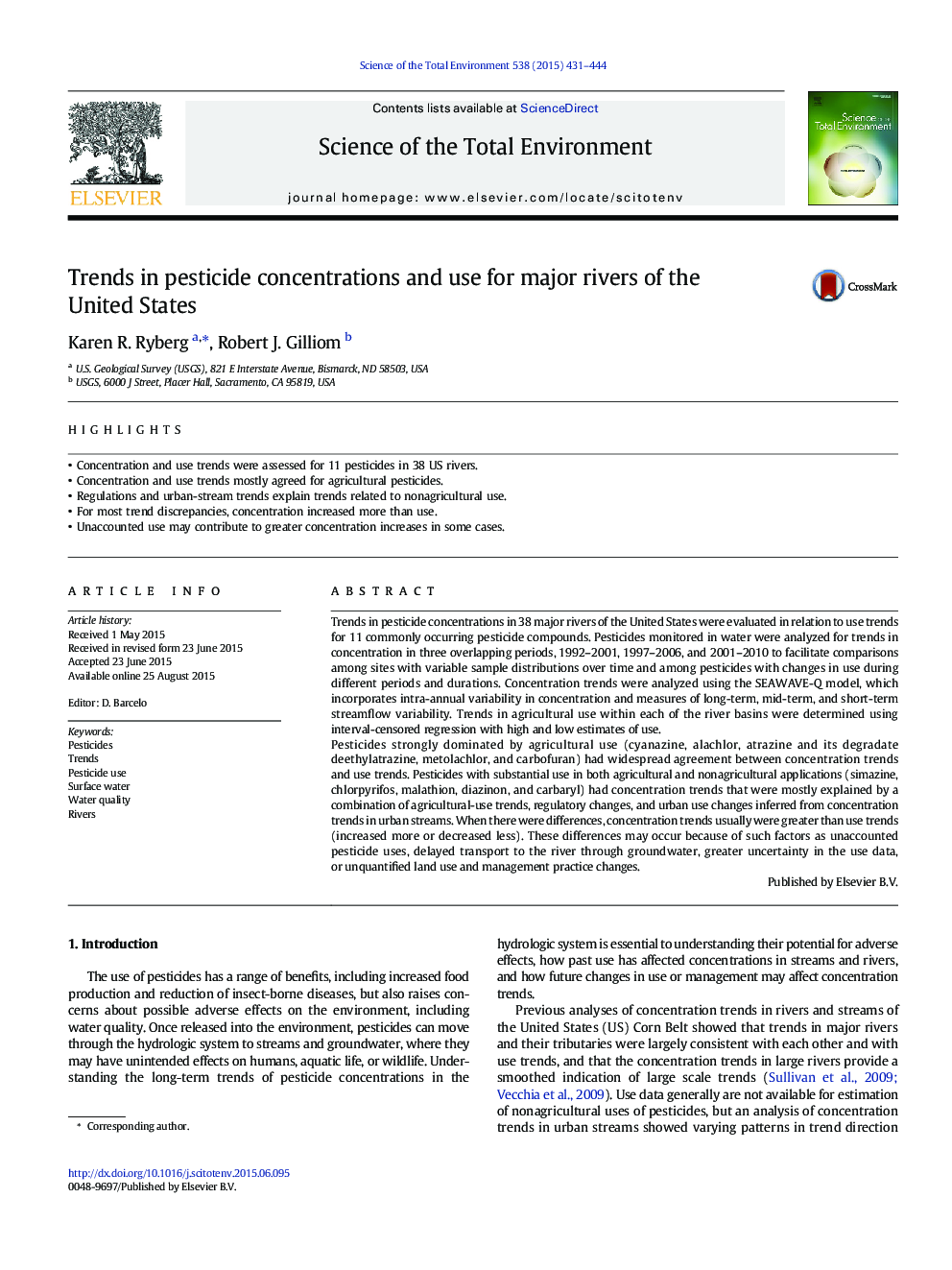| Article ID | Journal | Published Year | Pages | File Type |
|---|---|---|---|---|
| 6325248 | Science of The Total Environment | 2015 | 14 Pages |
Abstract
Pesticides strongly dominated by agricultural use (cyanazine, alachlor, atrazine and its degradate deethylatrazine, metolachlor, and carbofuran) had widespread agreement between concentration trends and use trends. Pesticides with substantial use in both agricultural and nonagricultural applications (simazine, chlorpyrifos, malathion, diazinon, and carbaryl) had concentration trends that were mostly explained by a combination of agricultural-use trends, regulatory changes, and urban use changes inferred from concentration trends in urban streams. When there were differences, concentration trends usually were greater than use trends (increased more or decreased less). These differences may occur because of such factors as unaccounted pesticide uses, delayed transport to the river through groundwater, greater uncertainty in the use data, or unquantified land use and management practice changes.
Related Topics
Life Sciences
Environmental Science
Environmental Chemistry
Authors
Karen R. Ryberg, Robert J. Gilliom,
